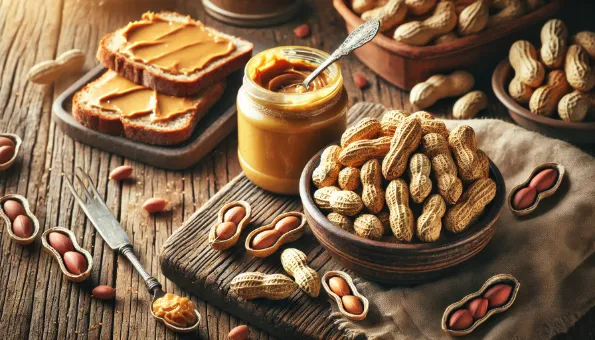Peanuts: Protein-Packed Legume with Healthy Fats
Peanuts are technically legumes, rich in protein, healthy fats, vitamin E, niacin, magnesium, and resveratrol-like antioxidants.

What Are Peanuts?
Peanuts (*Arachis hypogaea*) grow underground, making them botanically legumes. They are consumed roasted, boiled, as peanut butter, or pressed into oil.
Nutritional Profile
- **Protein:** ~25g per 100g, plant-based
- **Healthy fats:** Mostly monounsaturated + some polyunsaturated
- **Vitamin E, B3 (niacin), folate, magnesium, phosphorus, manganese**
- **Resveratrol** and other polyphenols with antioxidant activity
Health Benefits
- **Heart health:** MUFAs and plant sterols may reduce LDL
- **Satiety & muscle:** High protein supports fullness and repair
- **Brain health:** Niacin and resveratrol may support cognition
- **Budget-friendly nutrition:** Affordable source of quality calories
Potential Downsides
- **Allergy:** Peanut allergy can be severe
- **Aflatoxins:** Risk from improperly stored peanuts—choose quality, tested products
- **Calories:** Energy-dense; portion control important
How to Use
- Eat roasted or boiled as a snack
- Spread **peanut butter** on toast, add to smoothies
- Use in **satay sauce**, stir-fries, desserts, or grind into peanut flour
Summary
Peanuts are nutrient-dense and versatile—great source of protein and healthy fats, but watch portion size and be mindful of allergies.
- 1. Peanuts
kikiriki (sirov, prženi ili u obliku putera); mahunarka, ali kulinarski tretirana kao orašasti plod

